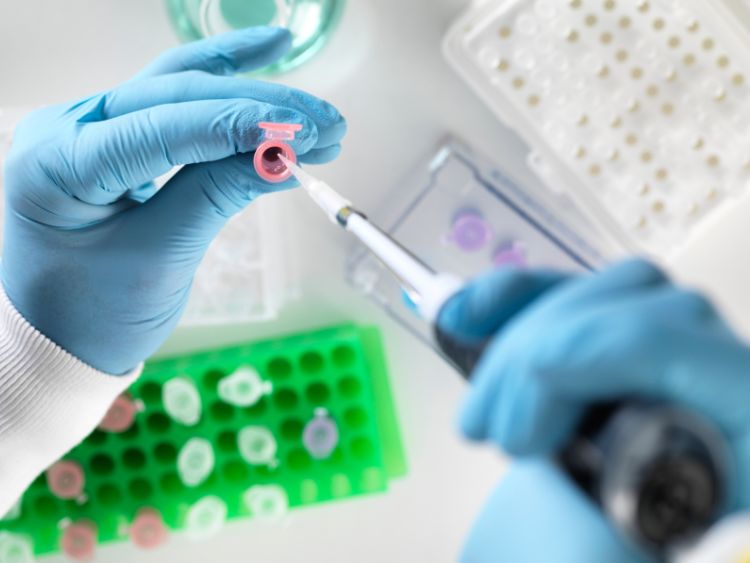Ever wondered what’s hidden in your DNA? Well, CMA genetic testing could be your key to unlocking those secrets. This type of genetic testing, known as Chromosomal Microarray Analysis (CMA), has revolutionized how we understand genetic conditions, diagnose diseases, and even plan our health journeys. With the rapid advancements in genetics, it’s high time we delve deep into what CMA genetic testing is all about and why it might be the future of personalized medicine. Buckle up, folks—this is going to be a fascinating ride!
What is CMA Genetic Testing?
CMA genetic testing, or Chromosomal Microarray Analysis, is a sophisticated method used to detect genetic anomalies. Unlike traditional genetic testing, which focuses on single genes or specific mutations, CMA scans the entire genome for gains and losses of DNA segments. This comprehensive approach allows for the detection of various genetic disorders, including developmental delays, autism spectrum disorders, and congenital abnormalities. But why should you care about CMA genetic testing?
The Importance of CMA Genetic Testing
- Early Diagnosis: Early detection of genetic disorders can significantly improve treatment outcomes and quality of life.
- Comprehensive Analysis: CMA provides a broader analysis compared to other genetic tests, ensuring no stone is left unturned.
- Personalized Medicine: Understanding your genetic makeup can lead to tailored treatments and preventative measures.
How Does CMA Genetic Testing Work?
The Process
- Sample Collection: The first step is collecting a sample, usually blood or saliva.
- DNA Extraction: The DNA is then extracted from the sample.
- Microarray Analysis: The extracted DNA is analyzed using a microarray chip, which scans for gains and losses in DNA segments.
- Data Interpretation: Geneticists interpret the data to identify any abnormalities.
What Can CMA Detect?
CMA genetic testing can identify a wide range of genetic conditions, including:
- Developmental Delays: It can pinpoint genetic causes of developmental delays in children.
- Autism Spectrum Disorders: CMA helps in identifying genetic factors associated with autism.
- Congenital Anomalies: It detects genetic causes of congenital anomalies like heart defects and cleft palate.
Benefits of CMA Genetic Testing
Accurate and Comprehensive
CMA genetic testing offers a high level of accuracy and comprehensiveness. It can detect even the smallest genetic anomalies that other tests might miss. This ensures that individuals get a complete picture of their genetic health.
Early Intervention
One of the biggest advantages of CMA genetic testing is early intervention. By identifying genetic disorders early, healthcare providers can develop effective treatment plans, improving the patient’s quality of life and potentially preventing complications.
Personalized Healthcare
In the age of personalized medicine, CMA genetic testing plays a pivotal role. Understanding your genetic makeup allows healthcare providers to tailor treatments specifically for you. This approach not only enhances treatment efficacy but also reduces the risk of adverse effects.
Potential Drawbacks of CMA Genetic Testing
Limitations
While CMA genetic testing is powerful, it has its limitations. It cannot detect single-gene disorders or predict the severity of detected conditions. It’s essential to understand these limitations to have realistic expectations.
Ethical Considerations
Genetic testing raises ethical questions, such as privacy concerns and the potential for genetic discrimination. It’s crucial to address these issues to ensure ethical use of genetic information.
FAQs About CMA Genetic Testing
What is the difference between CMA and other genetic tests?
CMA scans the entire genome for DNA gains and losses, offering a broader analysis compared to tests that focus on specific genes or mutations.
Is CMA genetic testing covered by insurance?
Many insurance companies cover CMA genetic testing, especially when it’s medically necessary. However, coverage can vary, so it’s best to check with your provider.
How long does it take to get results from CMA genetic testing?
Results typically take a few weeks, as the process involves detailed analysis and interpretation by geneticists.
Can CMA genetic testing be done on adults?
Yes, CMA genetic testing can be performed on individuals of any age, from newborns to adults.
What should I do if my CMA genetic test shows an abnormality?
If an abnormality is detected, consult with a genetic counselor or healthcare provider to understand the implications and discuss potential next steps.
Conclusion
CMA genetic testing is a game-changer in the field of genetics. Its ability to provide comprehensive insights into our DNA makes it a powerful tool for early diagnosis, personalized medicine, and improved healthcare outcomes. While it does have its limitations and ethical considerations, the benefits far outweigh the drawbacks. Whether you’re considering it for yourself or a loved one, understanding what CMA genetic testing offers can help you make informed decisions about your health.
Authoritative Links
For further reading and authoritative information on CMA genetic testing, you can refer to the following sources:
- National Institutes of Health (NIH) – https://www.nih.gov
- Genetic and Rare Diseases Information Center (GARD) – https://rarediseases.info.nih.gov
- American Society of Human Genetics (ASHG) – https://www.ashg.org
- Centers for Disease Control and Prevention (CDC) – https://www.cdc.gov
- National Human Genome Research Institute (NHGRI) – https://www.genome.gov
This article has aimed to provide a comprehensive, engaging, and informative look at CMA genetic testing. If you have any questions or need further information, don’t hesitate to reach out to a healthcare professional. Understanding your genetics is a step towards a healthier future.

